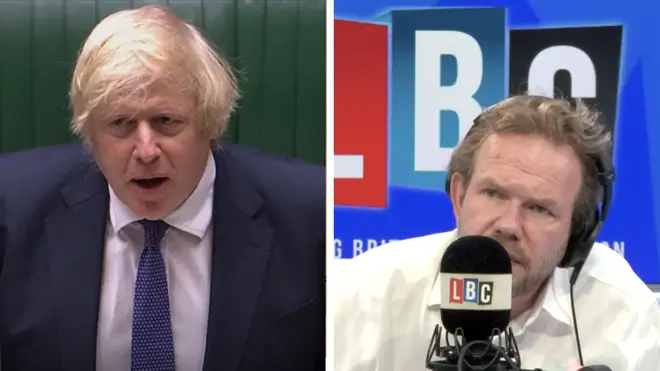
Ali Miraj 12pm - 3pm
2 July 2020, 14:04

James O'Brien learns the "staggering" reasons UK lost track of Covid
James O'Brien learns how Britain lost track of coronavirus from journalist Stephen Grey, who deep-dove into the "shocking" details to write a revealing report.
Mr Grey told James that every time he scrutinises the UK's pandemic response it is "quite shocking", with this piece focusing on the failing to coordinate testing which meant "we were weeks behind" other countries.
His previous reports detailed the delayed lockdown, where "the science was behind the rest of the world in pushing for early action," and the government's decision not to prioritise care homes which "cost lives."
Mr Grey said when going out to research the testing issue, he found, "Unlike other countries...we had a very very narrow test for Covid-19 which meant that we were just not picking up the cases.
What I found was the doctors had pleaded for a much wider definition of what Covid was. We had a very very tight thing, coughs and fever, that was all that would count.
We discovered that Public Health England was refusing to test people who were outside that category. You had doctors who were staring at patients who they were convinced had Covid-19, they didn't count."
James said he was one of them, earlier this year explaining why he thought he had it, which has since been confirmed.

"My symptoms would not have qualified me for a test because my only symptom was my loss of taste and smell," James said.
Mr Grey said all these preventative action, such as shutting down factories, "could have happened months ago if they'd actually engaged with the data and kept testing, and had means to follow the spread of the virus.
"We worked out they probably only would've picked up about 3% of Covid infections, at best 10%, and that's only a tiny fraction. That meant the whole thing was ripping across the country and people who could have done something about it, local health directors, didn't have that data.
"When the data did come, another thing that was pretty shocking was they were denied that data," Mr Grey said, "at various points the surveillance data was actually classified as an official secret. Until April they weren't even sharing that with local authorities."
He explained whilst in Germany they were ramping up contact tracing by the end of February, and making it a local operation, "we were cancelling that."
"It's not just an accident," Mr Grey said, explaining there were NHS institutes pushing to test people who were told to "back off" as it is a Public Health England issue.
"I think there was a fear that if you found too many people with Covid you might have to have too many people off work. Cause another crisis, expose the understaffing," he suggested.
He said if it wasn't by design, it was a "political failure to look out the window" at countries that were successfully containing the virus.